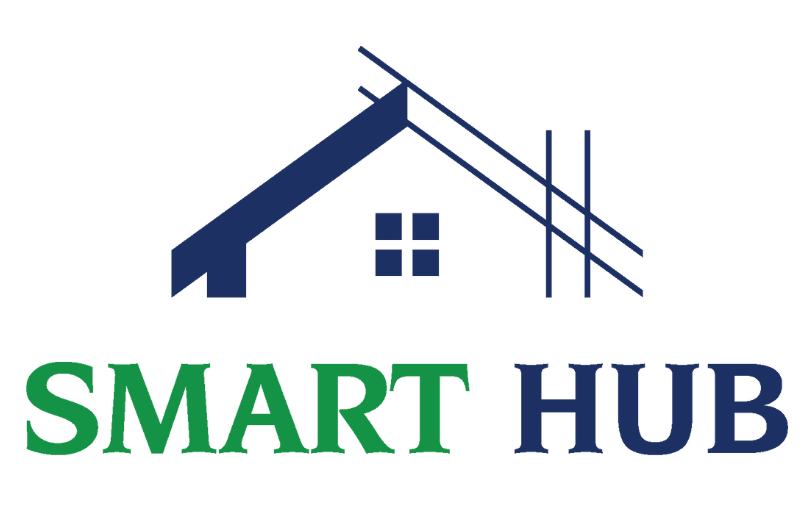Islamabad, the capital city of Pakistan, stands at a crossroads of tradition and modernity. As its skyline evolves, the construction sector is pivotal in addressing urbanization challenges, environmental concerns, and the demand for smarter infrastructure. Innovation in construction has become a cornerstone of Islamabad’s development strategy, blending advanced technologies, sustainable practices, and forward-thinking policies. This article explores how the city’s construction industry adapts to global trends while addressing local needs, ensuring projects are efficient, eco-friendly, and aligned with long-term urban planning goals.
Adopting Innovation in Construction
The integration of digital tools and advanced machinery is transforming how construction projects are designed and executed in Islamabad. From architectural visualization to on-site execution, technology is streamlining processes and reducing delays.
Building Information Modeling (BIM) for Precision Planning
Building Information Modeling (BIM) has gained traction among Islamabad’s leading architecture and engineering firms. This 3D modeling approach allows teams to simulate entire projects digitally, identifying potential clashes between structural, electrical, and plumbing systems before construction begins. For instance, large-scale projects like the Islamabad Metro Bus System and new commercial hubs in the Blue Area have utilized BIM to optimize resource allocation and minimize errors.
Drones for Site Monitoring and Surveying
Construction sites across Islamabad increasingly rely on drones for real-time monitoring and topographical surveys. These devices provide high-resolution aerial imagery, enabling project managers to track progress, assess safety risks, and update stakeholders without physical site visits. In hilly areas like Daman-e-Koh, drones help surveyors map terrain accurately, reducing the time required for traditional methods.
3D Printing and Prefabrication
While still in early adoption, 3D printing and prefabrication techniques are beginning to influence Islamabad’s construction landscape. Prefabricated steel and concrete components, manufactured off-site, are assembled rapidly on location, cutting project timelines by up to 30%. This method is particularly useful for low-cost housing initiatives, such as the Naya Pakistan Housing Program, where speed and cost-efficiency are critical.
Sustainable Building Practices Gaining Momentum
With climate change and resource scarcity becoming pressing concerns, Islamabad’s construction industry is prioritizing sustainability. Developers and policymakers are aligning with global standards to reduce the environmental footprint of new projects.
Green Building Certifications and Standards
Organizations like the Pakistan Green Building Council (PAGBC) are promoting Leadership in Energy and Environmental Design (LEED) certifications for commercial and residential buildings in Islamabad. Structures such as the Serena Hotel and the Ministry of Climate Change headquarters incorporate energy-efficient lighting, rainwater harvesting systems, and locally sourced materials to meet these benchmarks.
Use of Recycled and Eco-Friendly Materials
Local contractors are experimenting with recycled steel, fly ash bricks, and bamboo composites to reduce reliance on conventional concrete and timber. Fly ash bricks, for example, are now widely used in Islamabad’s residential complexes due to their thermal insulation properties and lower carbon emissions.
Solar Energy Integration
Solar panels are becoming a common feature in both public and private construction projects. The Islamabad Electric Supply Company (IESCO) has incentivized solar installations through net-metering policies, encouraging homeowners and businesses to adopt renewable energy. The Pakistan Engineering Council’s new office building, for instance, generates 40% of its power through rooftop solar arrays.
Smart Infrastructure Development
As Islamabad expands, the need for intelligent infrastructure solutions has never been greater. Smart roads, adaptive traffic systems, and integrated utilities are key areas of focus for city planners.
Intelligent Transportation Systems (ITS)
Traffic congestion in sectors like G-6, G-7, and I-8 has prompted the adoption of ITS technologies. Real-time traffic monitoring via AI-powered cameras and sensors helps authorities adjust signal timings dynamically. The recent installation of smart traffic signals at major junctions near Faizabad and Zero Point has reduced average commute times by 15%.
Smart Water and Waste Management
The Capital Development Authority (CDA) is piloting IoT-enabled water distribution networks to detect leaks and optimize usage. In Model Town and Gulberg Greens, underground waste compactor systems have been introduced to improve sanitation and reduce manual labor.
Resilient Urban Design
Islamabad’s susceptibility to flash floods and earthquakes has led to stricter building codes. Engineers now prioritize seismic-resistant designs and permeable pavements to mitigate flood risks. The new Islamabad International Airport terminal, completed in 2018, incorporates shock-absorbing foundations and energy-efficient ventilation systems.
Government Policies Driving Construction Innovation
Public sector initiatives and regulatory reforms are crucial enablers of innovation. The federal and provincial governments have introduced measures to attract investment, enforce sustainability standards, and modernize the industry.
Regulatory Reforms for Efficient Project Approvals
The CDA has digitized building permit processes, reducing bureaucratic delays. Developers can now submit applications online and receive approvals within weeks instead of months. This shift has accelerated projects like the Islamabad Business District and the expansion of the Islamabad Expressway.
Public-Private Partnerships (PPPs) for Mega Projects
Collaborations between government bodies and private firms have funded critical infrastructure, including the Orange Line Metro Train and the New Islamabad City projects. PPPs ensure access to cutting-edge technology and international expertise while sharing financial risks.
Incentives for Green Construction
The government offers tax exemptions and expedited approvals for developers adhering to eco-friendly standards. For example, builders using energy-efficient glass or solar panels in their designs receive a 5% reduction in property taxes under the Punjab Green Cities Act.
Challenges Hindering Widespread Adoption
Despite progress, several barriers slow the pace of innovation in Islamabad’s construction sector.
High Initial Costs
Many small and medium-sized contractors struggle to afford advanced machinery or sustainable materials. While long-term savings exist, upfront investments in technologies like BIM software or prefabrication units remain prohibitive for smaller firms.
Skill Gaps and Workforce Training
The industry faces a shortage of professionals trained in modern construction methods. Vocational training institutes in Islamabad, such as the National Vocational and Technical Training Commission (NAVTTC), are addressing this gap but at a slower pace than needed.
Bureaucratic Red Tape
Although digitization has improved, overlapping regulations between federal and local authorities still cause delays. Land acquisition disputes and environmental clearance processes often stall projects for years.
Future Trends to Watch
Looking ahead, Islamabad’s construction sector will likely embrace emerging trends that enhance productivity and sustainability.
Modular Construction for Affordable Housing
Modular techniques, where buildings are constructed in sections and assembled on-site, could address Islamabad’s housing shortage. This approach reduces material waste and construction time, making it ideal for low-income housing schemes.
Artificial Intelligence in Project Management
AI-driven platforms are expected to optimize scheduling, budget tracking, and risk assessment. Local firms are beginning to pilot software that predicts delays based on historical data and weather patterns.
Circular Economy Principles
Reusing demolition waste and repurposing old materials will become more common. Initiatives like the CDA’s “Waste to Wealth” program aim to convert construction debris into raw materials for new projects.
Conclusion
Innovation in construction is no longer optional for Islamabad—it is a necessity. As the city grows, adopting modern technologies, sustainable practices, and smart infrastructure will determine its ability to meet the demands of a modern urban population. While challenges like funding gaps and regulatory complexities persist, collaborative efforts between the government, private sector, and academic institutions can drive meaningful progress. By prioritizing quality, efficiency, and environmental stewardship, Islamabad’s construction industry has the potential to set a benchmark for cities across Pakistan and beyond.
Want to make your home or project stronger and safer for the future? Work with SmartHub Construction, a reliable name in innovative and resilient building solutions. Our team of experienced architects and engineers focuses on smart techniques that prioritize safety, sustainability, and durability. Let’s work together to create a more resilient Islamabad and safeguard your property for the years ahead!

